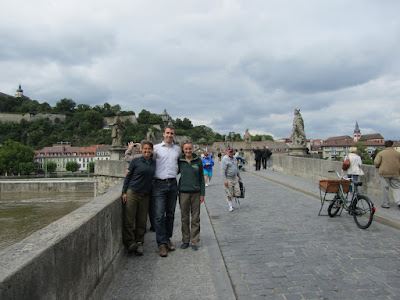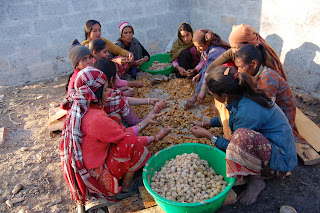A major feature of The VIS Academic Program for high school juniors and seniors is Exhibition, an independent study capstone class. Long-established VIS connections with people and organizations around Ladakh benefit internships that allow students to delve deeper into local communities, and contribute to the work of organizations and local society. Research is often undertaken jointly with SECMOL students. Final exhibition projects include written as well as audio/visual components, and are presented to students, teachers and mentors at SECMOL, and to various communities back at home. Students currently in Ladakh have chosen their exhibition topics, and April is devoted to research and internships to culminate in presentations at the SECMOL campus at the end of the month. For more information on exhibitions, and the VIS Academic Program, see www.vermontis.org.
Katrina Alden (The Sharon Academy, VT) is studying women’s health, specifically sex education and the myths behind menstruation and Katrina is staying with one of the founders of Women’s for Women’s health in Leh and is conducting interviews with women and health facilities in Leh.
Caroline Atwood (The Sharon Academy, VT) is researching the introduction of Western toys in Ladakh, and their effect on childhood development. She is studying children from two families, one in the city of Leh and the other in a rural village. In addition to comparing and contrasting the behaviors of these children, Caroline is spending time interviewing youth and business owners in and around Leh to further understand changing perspectives in children related to toys and play.
Moya Cavanaugh (Mt. Mansfield Union HS, VT) is exploring the effects of oral tradition on Ladakhi culture as seen through folktales, especially Ladakh’s epic poem, “Gesar of Ling.” Moya is listening to this folktale, which takes approximately 24 hours to tell, to understand the customs and cultural implications surrounding folklore telling. She is staying with a famous Ladakhi folktale orator and his family to learn phases of this folktale, and then with a former SECMOL teacher who works for a cultural preservation NGO in Leh.
Kylie Cook (Thetford Academy, VT) is researching agriculture in Ladakh, and the effect modernization has on youth perspectives of farming. She is taking part in the three-day annual process of building canals for the intricate irrigation system all households must create for their farms. Kylie will be staying with a family in the village of Alchi, and is conducting surveys and interviews with surrounding neighbors.
Cedar Farwell (The Sharon Academy, VT) is studying how science and technology can be balanced with the philosophies applied by Buddhist monks in Ladakh. He is spending time experiencing monastic life in Ladakh’s famous Thikse monastery to research how daily practices have changed in the past fifty years. He will then spend two days conducting interviews with NGOs and Buddhist scholars in Leh.
Jake Huston (Leland and Gray HS, VT) is researching responses to the 2010 disastrous floods in Ladakh. He is living with a family in the Solar Housing Colony affected by the floods. Specifically, Jake is studying pre-fabricated housing models given to displaced families and their ineffectiveness due to a lack of consideration of variables such as Ladakh’s unique climate and culture.
Taylor Knoop (East Greenwich HS, RI) is studying the effect educational methods can have on cultural preservation and pride. She is comparing the differences between education in government schools within Leh and the village of Shey, and at SECMOL (where she has lived for almost three months). She is interviewing teachers and administrative staff, and observe classes, including personal interactions in classrooms such as discipline, curriculum models and daily activities.
Simone Labbance (U32 HS, VT) is looking into cross-cultural dialogue techniques to be used at SECMOL. She is interviewing Ladakhi youth to create and implement activities that foster multiculturalism, and that may be used in future VIS programs. She is using a Danish group as a study sample to understand the effects her dialogue activities have on groups visiting SECMOL.
Alana Ziegler (homeschooled, Nova Scotia) is researching the availability of mental healthcare in Ladakh, and how physiological illnesses are treated. She is staying with the Assistant Director of PAGIR (People’s Action Group for Inclusive Rights), an NGO that works with people with disabilities. Alana is interviewing practitioners of local hospitals to further understand the situation for mental health patients in Ladakh.






































